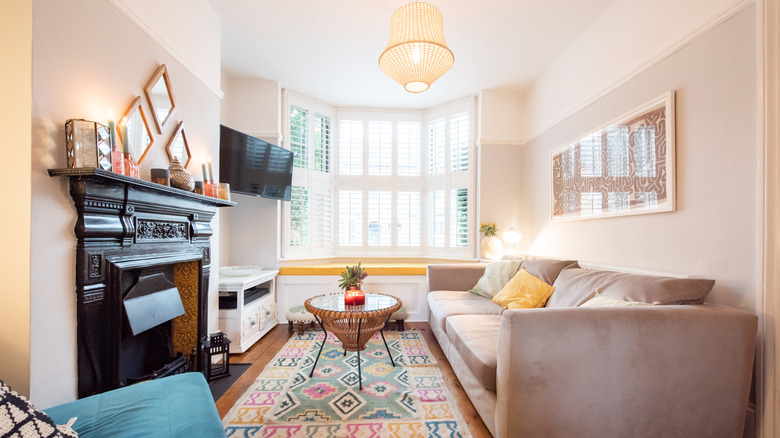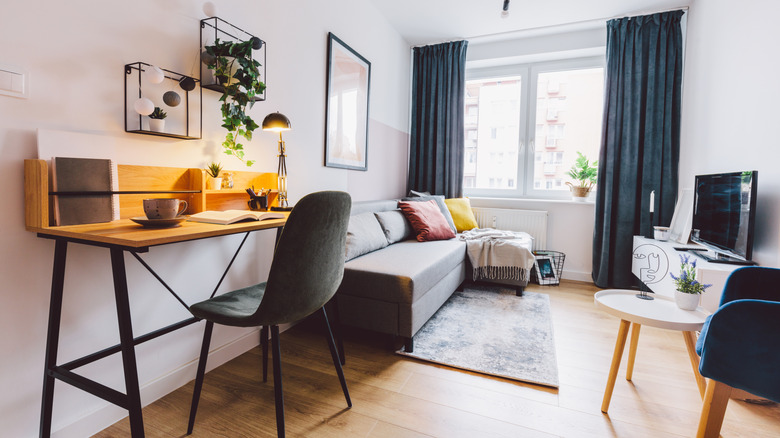What's The Difference Between A Den And A Living Room?
You may think referring to a space as a "living room" or a "den" depends on where you grew up. But unlike the eternal debate between buggy and shopping cart (or soda and pop), these terms aren't interchangeable. You can find real estate ads using this terminology all over the country, and often in the same listing. So, then, what's the difference?
A house can have a living room and no den, but not a den with no living room. That's because a den is a cozier, second living room outside of the home's main living space. It is often defined by four walls, where most modern living rooms are more likely to be open. A den may also be referred to as a "bonus room" or "multipurpose room" and can be used as a home office, library, media room, playroom, or additional family room.
If used as a second living room, the den will be the smaller, less formal of the two rooms. A traditional living room is usually the first area guests see when they enter the house, so it is where the aesthetically pleasing furniture is kept. The den is where the old recliner and the big-screen TV are located. It's where comfort may be preferred over design — and why the den is usually found near the back of the home.
Does a den add value to your home?
A den implies extra living space, which is always a bonus for buyers. There are no legal requirements to call a space a "den" in a real estate listing, although some suggest it should have a window and heating or cooling to earn the title (in other words, a livable part of the home, not space in your unfinished basement). If you are lucky enough to have a large home complete with home office, playroom, and multiple bedrooms, the addition of a den on the listing is certainly going to bring added value. However, if your home is on the smaller side, a buyer may prefer having a home office to two living spaces, especially as more jobs are becoming remote. Turning your den into an additional bedroom will always help your home sell for more money, but make sure the room has a window and meets any other legal requirements before calling it a bedroom (these vary state-by-state).
The beauty of a den is that you can turn it into the room that works best for you (gift wrapping room, anyone?), and stage it in the most profitable way when it comes time to sell. Your realtor will know what buyers are looking for in your area, and will know the best terminology to use on your listing. That best sums this up, in the end: There are many ways to use a den, but no matter what, a den is not the living room (despite its similarity to one).

